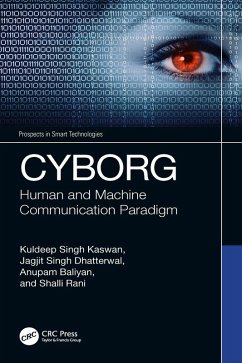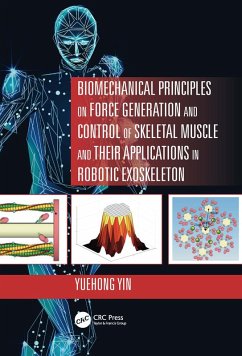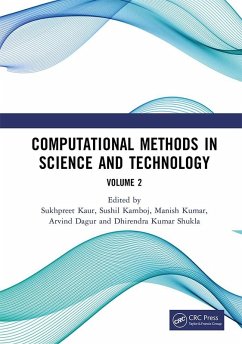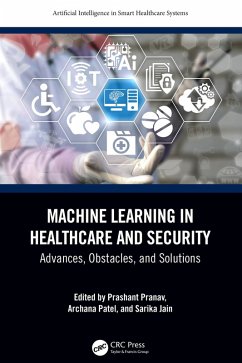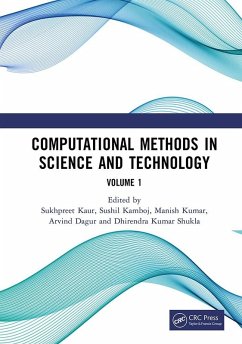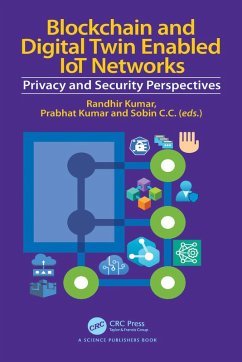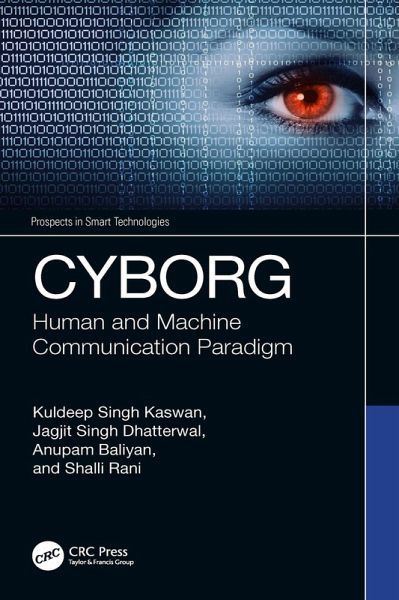
CYBORG (eBook, PDF)
Human and Machine Communication Paradigm
Versandkostenfrei!
Sofort per Download lieferbar
45,95 €
inkl. MwSt.
Weitere Ausgaben:

PAYBACK Punkte
23 °P sammeln!
This book provides in-depth information about the technical, legal, and policy issues that are raised when humans and artificially intelligent machines are enhanced by technology.Cyborg: Human and Machine Communication Paradigm helps readers to understand cyborgs, bionic humans, and machines with increasing levels of intelligence by linking a chain of fascinating subjects together, such as the technology of cognitive, motor, and sensory prosthetics; biological and technological enhancements to humans; body hacking; and brain-computer interfaces. It also covers the existing role of the cyborg i...
This book provides in-depth information about the technical, legal, and policy issues that are raised when humans and artificially intelligent machines are enhanced by technology.
Cyborg: Human and Machine Communication Paradigm helps readers to understand cyborgs, bionic humans, and machines with increasing levels of intelligence by linking a chain of fascinating subjects together, such as the technology of cognitive, motor, and sensory prosthetics; biological and technological enhancements to humans; body hacking; and brain-computer interfaces. It also covers the existing role of the cyborg in real-world applications and offers a thorough introduction to cybernetic organisms, an exciting emerging field at the interface of the computer, engineering, mathematical, and physical sciences.
Academicians, researchers, advanced-level students, and engineers that are interested in the advancements in artificial intelligence, brain-computer interfaces, and applications of human-computer in the real world will find this book very interesting.
Cyborg: Human and Machine Communication Paradigm helps readers to understand cyborgs, bionic humans, and machines with increasing levels of intelligence by linking a chain of fascinating subjects together, such as the technology of cognitive, motor, and sensory prosthetics; biological and technological enhancements to humans; body hacking; and brain-computer interfaces. It also covers the existing role of the cyborg in real-world applications and offers a thorough introduction to cybernetic organisms, an exciting emerging field at the interface of the computer, engineering, mathematical, and physical sciences.
Academicians, researchers, advanced-level students, and engineers that are interested in the advancements in artificial intelligence, brain-computer interfaces, and applications of human-computer in the real world will find this book very interesting.
Dieser Download kann aus rechtlichen Gründen nur mit Rechnungsadresse in A, B, BG, CY, CZ, D, DK, EW, E, FIN, F, GR, HR, H, IRL, I, LT, L, LR, M, NL, PL, P, R, S, SLO, SK ausgeliefert werden.




